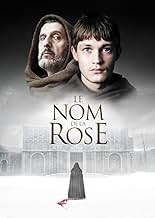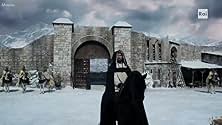In 1327, an enlightened friar and his young apprentice investigate a series of mysterious deaths at an abbey risking the wrath of a powerful Inquisitor. Television adaptation of Umberto Eco'... Read allIn 1327, an enlightened friar and his young apprentice investigate a series of mysterious deaths at an abbey risking the wrath of a powerful Inquisitor. Television adaptation of Umberto Eco's novel 'The Name of the Rose'.In 1327, an enlightened friar and his young apprentice investigate a series of mysterious deaths at an abbey risking the wrath of a powerful Inquisitor. Television adaptation of Umberto Eco's novel 'The Name of the Rose'.





































